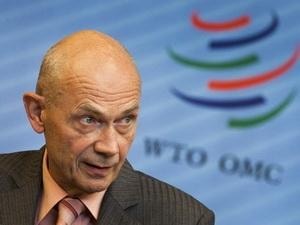Countries seek solutions to save the Doha round of negotiations
On May 3, countries participating in the Doha round of negotiations responded to the plan of the Director General of the World Trade Organization (WTO), Pascal Lamy, in an effort to find a solution to save the Doha round of negotiations from collapsing after 10 years of negotiation.
|
“The price to be paid will be high in lost opportunities for increased trade and development, increased protectionism and a weakened multilateral international trading system due to the WTO’s failure to legislate, to update the rules governing international trade and to address growing economic interdependence among countries,” he said.
Mr. Pascal Lamy emphasized that up to now, both developed and developing countries have acknowledged responsibility for the risk of the Doha Round collapsing and have shared responsibility for finding ways to break the deadlock of the Round.
Ambassadors of WTO member countries in Geneva have agreed to rule out three options that could collapse the negotiation round: continue negotiations as they have been for the past 10 years; stop the current negotiation round and start from the beginning of another round; end the negotiation round and give up.
Ambassadors acknowledged the progress made over the past 10 years in the current round of negotiations, but said there was a need for continued bilateral and global consultation on new ideas to find a way to break the impasse in key areas of negotiations. Many ambassadors stressed the need to continue negotiations and explore mutual concessions to find a way to break the impasse.
The European Union (EU) has made concessions on non-agricultural market access (NAMA). Different ideas for a new path for the round have been proposed, and they are not limited to the NAMA negotiations.
According to VNA

